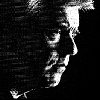The Irish public broadcast station Lyric FM organised this 5 day festival in Dublin dedicated to the Irish composer Gerald Barry. It allowed one to get a clear picture of the rich creative output of this unusual composer. The only work missing was a staging of his most important work, the opera The Intelligence Park, which was originally commissioned by the Institute of Contemporary Arts in London and premiered in 1990 by the Almeida Festival. Instead, we heard Five Chorales for two pianos, which are derived from this opera. The pianists Noriko Kawai and the Russian Pavel Nercessian gave a fine performance of this very complex work. Noriko Kawai has recorded many of Barry's piano pieces and presented a selection in a matinee recital.Barry was born 1952 in Co. Clare. From 1975-81 he studied with Stockhausen and, intensively, with Kagel in Cologne, whose influence on Barry is very tangible. The subtle irony and absurd humour in the choir pieces The Coming of Winter and, particularly, in The Ring were wonderfully captured by the National Chamber Choir of Ireland under British conductor Simon Joly.
The festival began with two of Barry's large orchestral works. The conductor Robert Houlihan guided the National Symphony Orchestra through the wild, stormy piece The Road (1997) commissioned by the Hessischer Rundfunk for the Frankfurt Radio Symphony Orchestra. Despite its dense cluster melodies, which sometimes get so blurred that one can only distinguish rough gestures, it leaves the listener with strong impressions. After the concert, The Road seemed to expand in one's mind into a much longer piece, simply because it was so dense.
Another remarkable piece is Barry's The Conquest of Ireland, here being given its Irish premiere. The bass Stephen Richardson took on the challenge and mastered the extreme range of the vocal part, which includes falsetto singing and whistling. It is an interesting work.
Barry's piece 1998 for violin and piano had its world premiere with Marc Sabat, violin and Stephen Clarke, piano. Barry couldn't have found more dedicated and competent musicians to play this very dense and complex work. Barry, who regards 1998 as a breakthrough into new territory expressed his astonishment, that each time he listens to 1998, he experiences it as new, mysterious music. Short motives are interlocked in canons. The piece seems static, but underneath it is constantly changing in an inextricable way.
Wiener Blut was commissioned by the Birmingham Contemporary Music Group (BCMG) and premiered at the Aldeburgh Festival on June 17, conducted by Thomas Adès. On June 25 it received its Irish premiere, again with the 13 expert BCMG musicians conducted this time by Rumon Gamba. Wiener Blut is quite an accessible piece, fast moving with sharp contrasts. Melodic fragments and harmonies surface into the foreground and disappear as soon one tries to grasp them for identification. It is about musical memory, as Gerald Barry explains:
"I find childhood a very good source for magic in music and memory. In fact memory has played a significant part in these recent pieces that I have written - 1998 for violin and piano for instance, it is also for piano solo and also for string quartet, and Wiener Blut - they are really made up of sounds remembered when I discovered music, when I was the age of 13 or 14 up until now. They are like journeys through musical history, whether it be chords from Mozart, Bruckner or Schumann, whoever. I simply wrote them down and these moments then become like points in a Serrault painting and then they coalesce and they come together and a picture is formed. So they are pieces to do with memory. Then they become frozen in the piece, but not frozen in a sterile way, but I place them in the piece. They are like a harmonic autobiography in a way."
Gerald Barry composes music like nobody else. He has created a very distinctive style. He has an obsession with musical moments trying to grasp and fix them, which of course is impossible. Barry is in essence a theatrical composer ( Kagel's influence), full of ironic humour : even in instrumental music Barry uses sounds and harmonies like actors, which he leads into surreal mazes. Some pieces I find too intense to bear like Chevaux de Frise, which I only heard on CD. To dedicate a series of concerts to one composer is a brilliant way to get a real insight in his musical thinking. The radio station Lyric FM should be praised for this achievement.
Jean Martin

 Return to:
Return to: